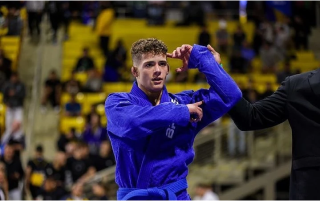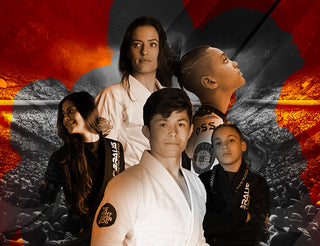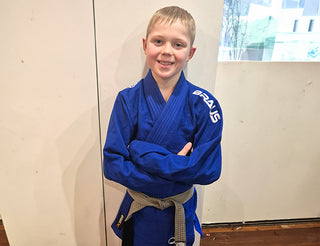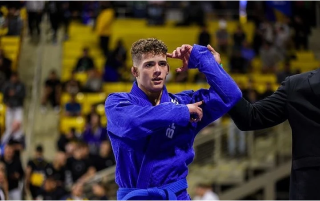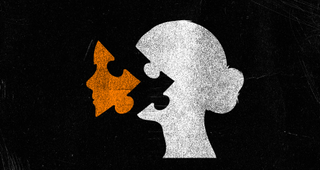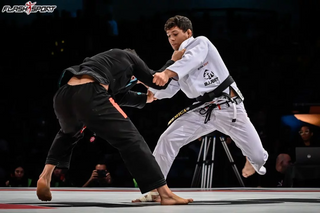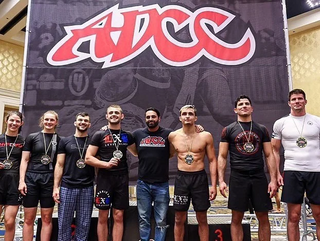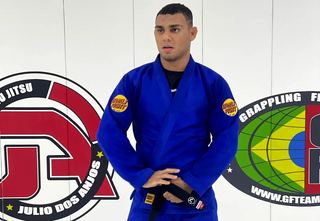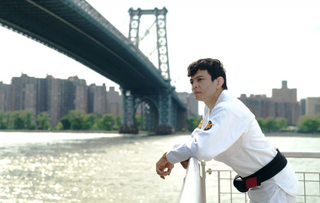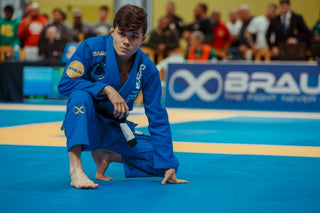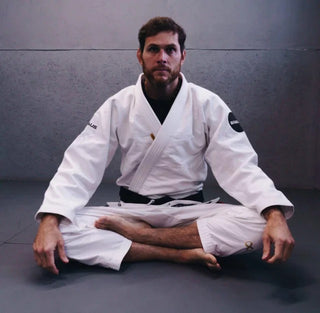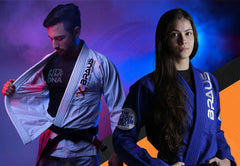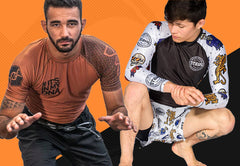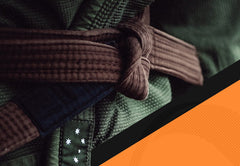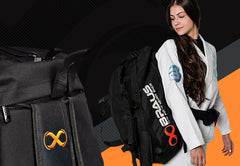“Benefiting from a Competitive Loss” is the next insightful piece of our mindset series presented by trauma, mindset and performance coach Briana Bowley. This deep dive into mindset limitations shows us how bringing awareness and intent to the forefront of your game can alter both the experience, the lessons and the outcome. Enjoy!
Kicking off our mindset series, Briana Bowley, esteemed trauma, mindset and performance coach , explores imposter syndrome; what it is and how to deal with it on and off the mats. It’s always an honour to collaborate with such knowledgeable individuals whose insights truly can provide valuable advantage to our game. Enjoy!
As a mindset coach, my clients commonly express a desire to experience a more balanced, focused and relaxed mindset in preparation for, and on the day of, competition. When the pressures of wanting to win are partnered with the stresses of not wanting to lose, it’s common to feel mentally and emotionally tense and perform in a way that is less than one is capable of. It is for this reason that it’s vital that your driving force for competing becomes greater than simply winning (or avoiding losing) a competition.
The more inspired and intentional your vision and the driving force behind your actions, the more objective you are and the more capable you will become in navigating both challenge and support in the pursuit of it. The more connected you are to your vision, the less reactive to the smaller day to day or moment by moment challenges you are, because you’re able to zoom out and see each success and failure as nothing more than a feedback mechanism to keep you growing, improving and realigning with a deeper meaning.
I regularly encourage my clients to tune into what the vision is ‘beyond the vision,’ and to begin to claim ‘the thing beyond the thing.’ In other words, asking themselves what jiu jitsu means to them beyond simply training jiu jitsu. If this is not something you’ve thought about before, I highly encourage you to consider the following prompts to support you in benefiting from past loses and to avoid diminishing your future competitive performances. These prompts are many of the very same prompts that I use with my clients.
Identify your objective. What drives your jiu jitsu as a whole? What drives you to train / compete?
Is your love of jiu jitsu driven solely by a desire to become a great jiu jitsu practitioner or is it something more nuanced? (Don’t be afraid to get really honest with yourself here!) Maybe jiu jitsu provides you with a way to improve your self defense skills. Maybe it serves as an additional opportunity to socialise or maybe you enjoy the strategy components and mental aspects of the game. It’s important to consider whether competing is purely an experience-based pursuit for you, or whether it’s something that you desire to turn into a career, an income or as a platform for further impact or to spread a particular message.
Once you’ve identified your objective, consider what success within this realm might specifically look like for you.
Once you’re aware of your driving force and what success is to you within that arena, you’re opening up the definitions of success and failure beyond the tiny box of simply ‘winning’ or ‘losing’ and thus, minimising the emotional feedback mechanism that inevitably comes as a result of winning or losing.
Identify how a loss is of service to your greater objective.
(This one might be somewhat of a mind-bender, so the invitation is here to really take the time to reflect). When your objective is something bigger than simply adding another tick to the win column, you’re able to identify how your competitive ‘failures’ and losses have actually been deeply of service to you and ultimately another key piece in leading you to your desired outcome. With this overarching perspective you’re able to take whatever happens and use it to your greatest advantage. You’ll no longer fear a loss and any limiting attachments to a win, will be eased.
Bonus step: Identify how a win is a drawback to your greater objective.
When you see only benefits to winning a competition you’ll have a ‘white knuckled’ attachment to that result and only that result. Of course, this means that if things don’t go your way, it’s inevitable that your attachment will lead to disappointment and a lingering feeling of failure. When you can balance out your perceptional biases around the result, you’ll no longer be so attached to it and a lack of attachment means that you’ll be able to think, behave and process information through a much more rational, present and focused lense.
As an example of what’s possible when you do this work, I previously coached a competitive brown belt who despite being a highly skilled, relaxed and analytical athlete within the context of the safety of training at his gym, found that once he got on the mats in a competitive arena it was like his brain ‘left the building’ and he was no longer able to think straight. In competitions he found himself making silly mistakes that under day to day circumstances he simply would not make. These are common symptoms of a fight, flight or freeze response and is the bodies way of naturally preparing to survive a looming threat. This response, despite being normal to a small degree (after all jiu jitsu IS a fighting sport with genuine physical safety risks), the degree at which the response was ruling him showed me that he had some perceptional attachments to the competition results which were affecting his performance.
Together we identified that the driving force behind his competitive jiu jitsu was ultimately the continued marketing and growth of his jiu jitsu gym and to continue to build upon his knowledge to serve as an example for his students. What was playing out behind the scenes was that he would often tell his students that they had his support regardless of whether they were winning or losing their matches. Of course, it only made sense that as the coach, it was important to him that he be an example. This meant that circumstances in which he might lose were actually unconsciously deeply desirable to him. The benefit to his driving force was that he was given the opportunity to be an example of good sportsmanship and maintaining self respect in the event of a loss, whilst also continually coming up against new challenges on the mats which encouraged him to double down on his jiu jitsu studies, improving his overall skill set as a coach.
On the flip side, the then unconscious drawback of his wins, were that his performance had the potential of setting a high standard for his students, leading them to feel a lingering pressure to perform well on the mats in order to represent the gym and his coaching well. His loyalty to his students was the thing that was limiting his performance capabilities. He also felt an ongoing pressure that if he performed at the level he knew he was capable of, that it would place him and his coaching skills in the spotlight in a way that he wasn’t, at the time, prepared for or able to handle. There was an underlying unconscious fear that the rapid success of his gym was a responsibility that he could not bear.
After we brought these subconscious beliefs, stories and limitations into his awareness he was able to consciously choose which results and their secondary benefits he most desired whilst letting go of the lingering (and overwhelming) attachment to receiving those benefits in a conditional context.
From that day onward, this particular client has voiced how much his performance and thought process on competition day has dramatically shifted. No longer does he feel the sense of freezing up and not being able to think clearly on the mats and his pre competition nerves have reduced to a subtle background noise that he is able to easily manage. He has experienced a long line of dominant and relaxed wins over his opponents and for the occasional loss, he is able to express gratitude for it because it’s clear to him the specifics of how it’s of service to his higher vision.
When our goals, vision and intentions are no longer in conflict with our beliefs, stories and perceptions, we free the body and mind up to thrive, as opposed to merely surviving. The truth is, most athletes are performing at a small fraction of their true capabilities because the majority of their attention and energy is being wasted on the war going on within their own head. What if you could step onto the competition mats without fear or attachment to your results? Imagine how much more focus and attention you’d have to give.

